It's hard to find a negative thing to say about eating broccoli because it's such a health-promoting superfood. It's packed with vitamins, minerals, antioxidants, and fiber; it's good for the heart, brain, bones, immune system, and gut health. Plus, they work as a great side with just about every dish. It certainly pays to overcome any unpleasant side effects of eating broccoli (some that we detail below) rather than avoid these mini "trees" because there are many surprising positives to consuming them. Read on, and for more on how to eat healthy, don't miss 7 Healthiest Foods to Eat Right Now.
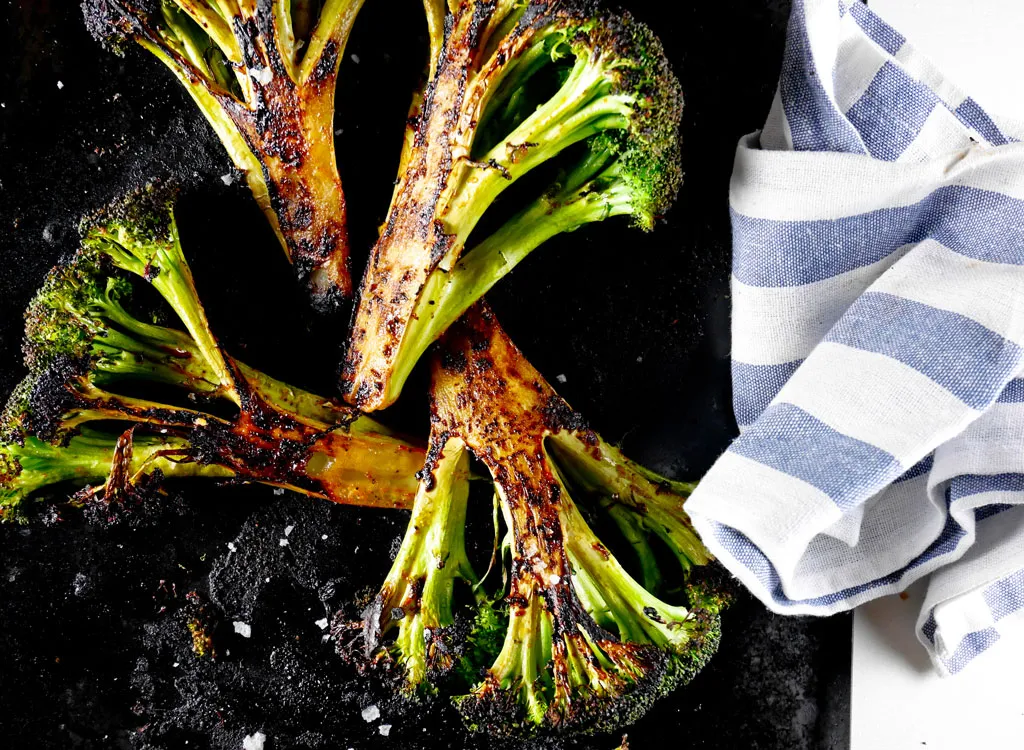
There is a secret side effect of eating broccoli, especially raw broccoli, that will no longer be a secret if, say, you experience it in a car full of people with the windows down: flatulence.
Broccoli causes gas and bloating big time. A report in the journal Gastroenterology & Hepatology details the gaseous symptomology and its various triggers in excruciating detail. Broccoli, like its cruciferous cousins, kale, cauliflower, and cabbage, tends to be one of the most prolific gas production vegetables, according to the journal. You know that, but do you know why? It's loaded with raffinose, a sugar made up of three saccharides—galactose, glucose, and fructose—that travels undigested through your small intestine until bacteria in your large intestine ferment it, which produces methane gas. The high-fiber veggie also contains glucosinolates, sulfur compounds that the gut breaks down into the rotten-egg smelling gas hydrogen sulfide. Here are some other wind-breaking edibles to be aware of, 19 Foods That Cause Bloating.
Cooking broccoli tends to reduce the gassy side effects because it jumpstarts the breakdown process that occurs in the gut. And slowly adding more fiber to your diet can gradually reduce symptoms, according to the International Foundation for Gastrointestinal Disorders.
RELATED: Sign up for our newsletter to get daily recipes and food news in your inbox!
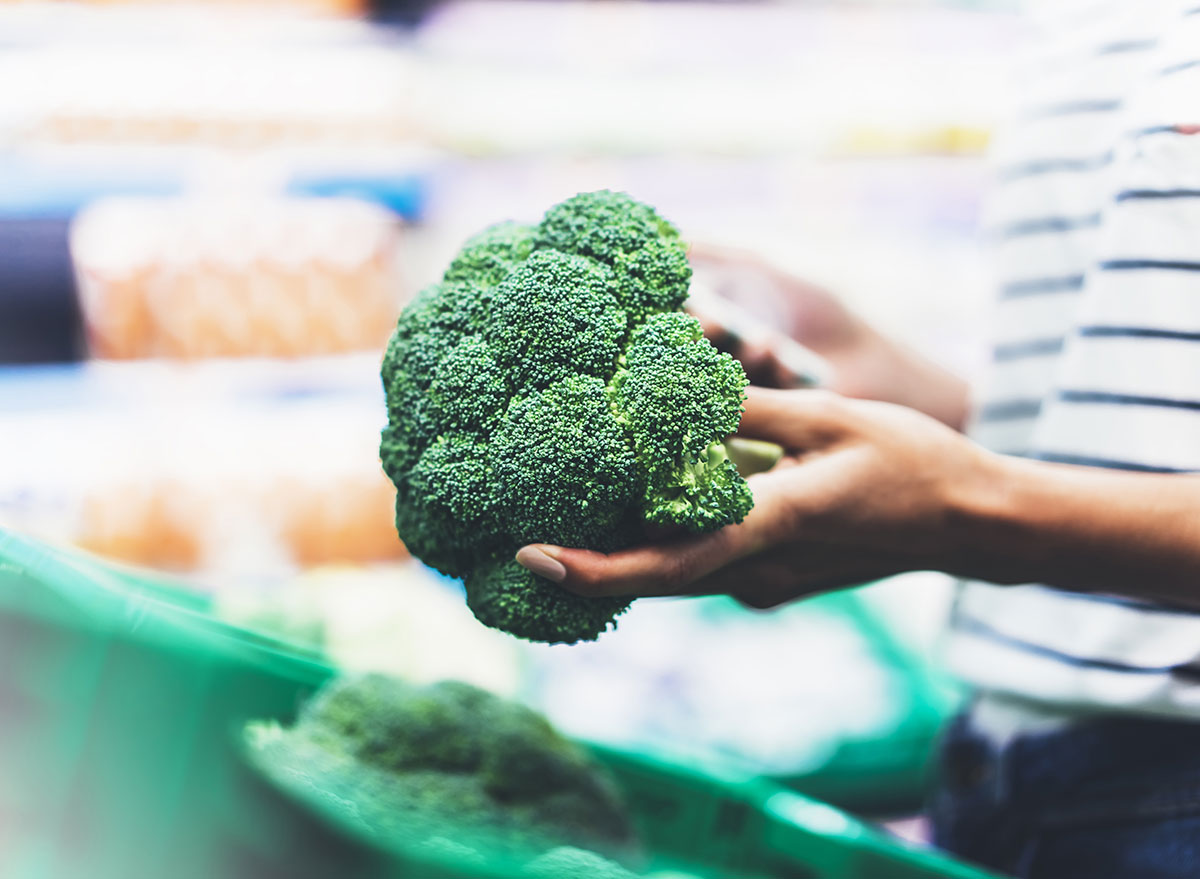
Broccoli intake seems to play a role in reducing CRP, or C-Reactive Protein, levels in the blood, a marker of inflammation. Your doctor can order a CRP blood test to determine your risk of developing coronary artery disease, narrowed arteries based on the results. A study in the International Journal of Food Sciences and Nutrition evaluated a broccoli-based dietary intervention in a group of young male smokers. After 10 days of eating a typical 250-gram serving of broccoli per day, the smokers saw their plasma CRP levels decrease by an average of 48% and their helpful folate and lutein levels rise 17% and 29% respectively.
READ MORE: Popular Foods That Increase Inflammation, Say Dietitians
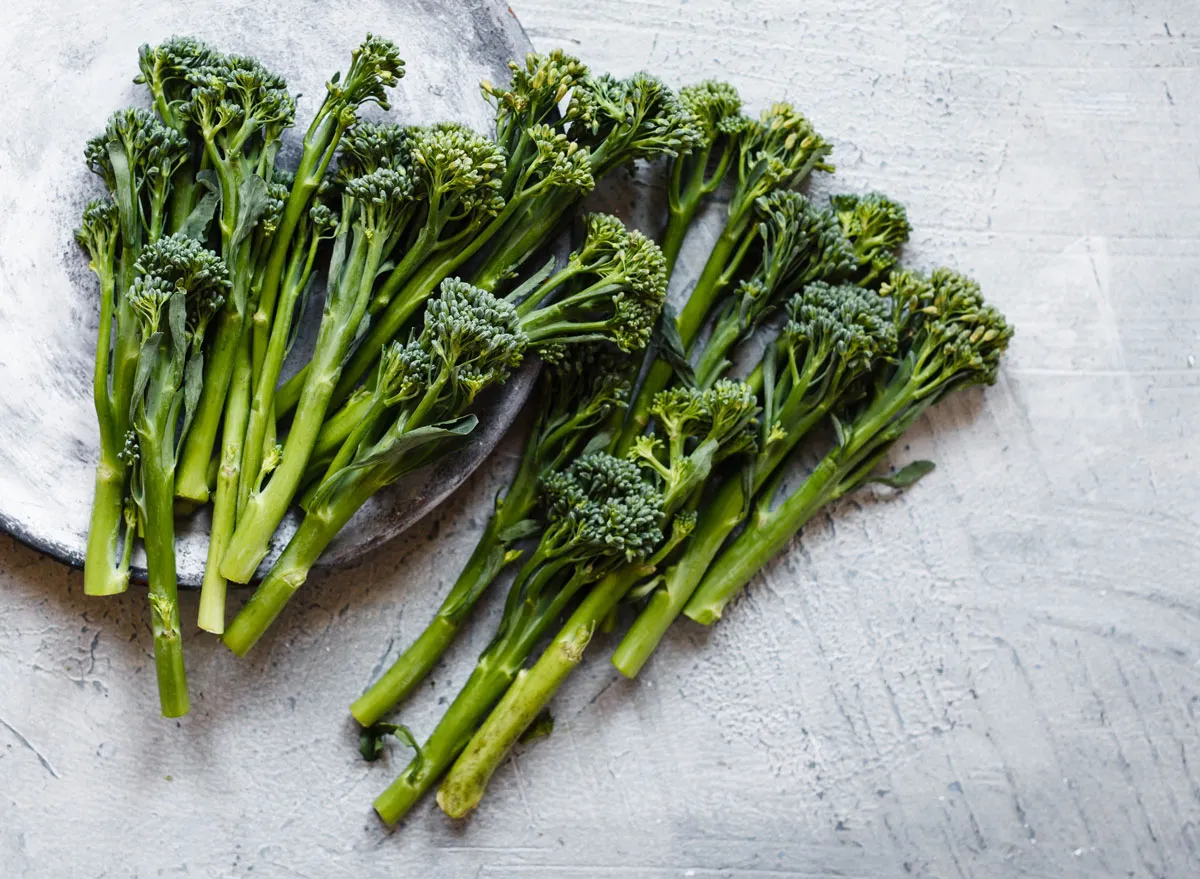
Broccoli and its buddy the Brussels sprout may keep your arteries and veins clear. Using data from 684 older Australian women, researchers reporting in the British Journal of Nutrition found that higher consumption of these and other cruciferous vegetables was associated with less extensive blood vessel disease.
Those women who ate the most broccoli and Brussels sprouts were less likely to have a build-up of calcium on their aorta, a key sign of extensive structural blood disease.
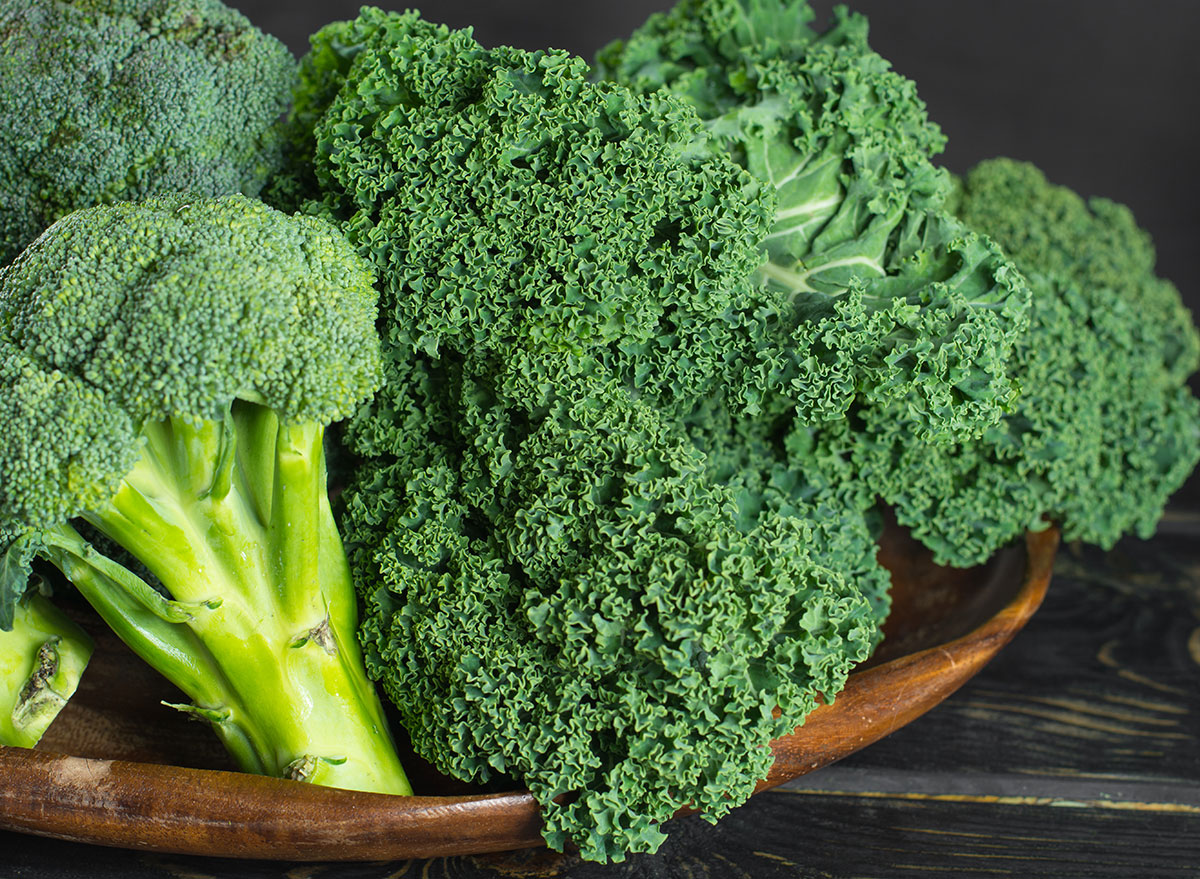
You don't have to be a hepatologist to recognize that a broccoli floret is a much better choice than a slice of pepperoni pizza or a few Twizzlers candies made of corn syrup and sugar. But it's wise to keep in mind that the more you follow the standard Western diet, which is high in saturated fats and sugars, the more likely you are to develop what's known as non-alcoholic fatty liver disease (NAFLD), which can progress to cirrhosis and liver cancer.
Fill up on broccoli and, for practical purposes, chances are good that you will consume less sugary, fatty foods that can damage your liver. But broccoli may provide more benefits than just a substitution for unhealthy foods: A rodent study in The Journal of Nutrition showed that mice fed a diet designed to mimic a fatty, sugary human diet experienced reduced triglycerides in their livers and a lower risk of liver cancer after receiving broccoli supplementation for six months.

It's far from proven, but many rodent and human studies demonstrate evidence linking daily consumption of cruciferous vegetables with a lower risk of prostate, colon, lung, and breast cancers, according to the National Cancer Institute.
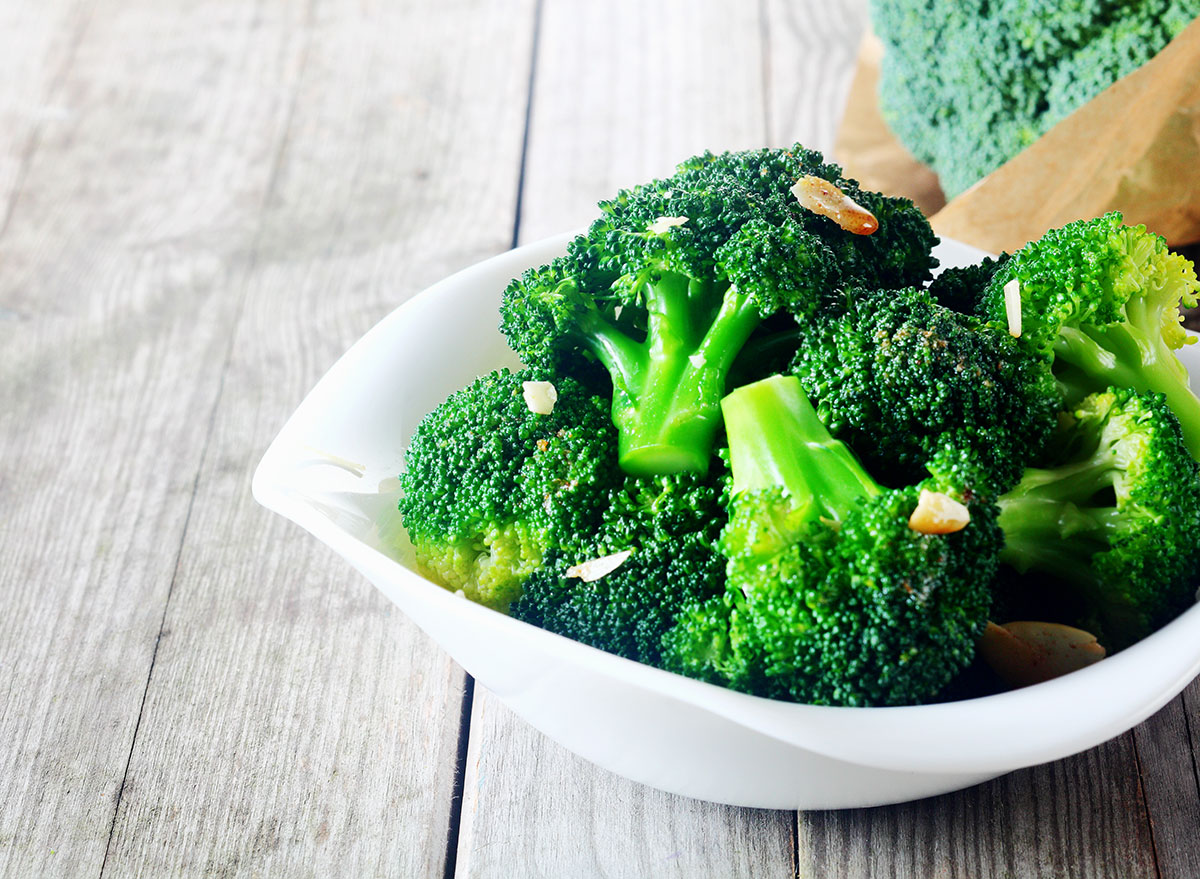
You probably don't think much about vitamin K, one of the lesser-known antioxidants, but you'd be wise to bone up on the vitamin found in green vegetables. A 2015 study in Nutrients demonstrated an association between higher intake of vitamin K and cognitive function in people 65 and older. Other studies suggest the antioxidant effects of the sulfur compounds in broccoli and other cruciferous vegetables may be protective against dementia and stroke.
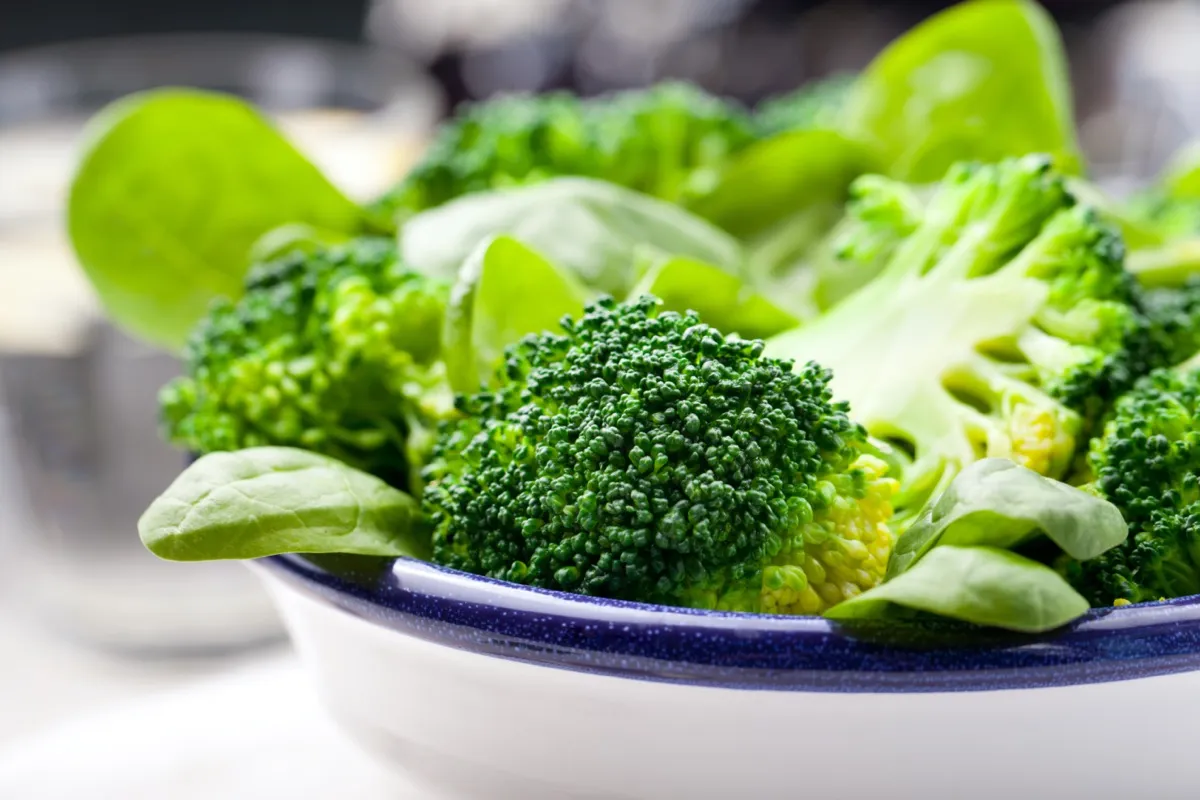
A serving of broccoli supplies a good source of low-calorie dietary fiber, about 3 grams for only 30 calories, so eating a few stalks and other fiber-rich foods will put you on the path toward the recommended goal of 25 and 38 grams daily for women and men respectively. A meta-analysis of observational studies in The Lancet found a 15% to 30% decline in all-cause mortality and reduced incidence of heart disease, stroke, type 2 diabetes, and colorectal cancer in people who ate the most fiber versus the least.
Read this next:
"eat" - Google News
August 22, 2021 at 07:26PM
https://ift.tt/2WcuFkr
Secret Side Effects of Eating Broccoli, Says Science | Eat This Not That - Eat This, Not That
"eat" - Google News
https://ift.tt/33WjFpI
https://ift.tt/2VWmZ3q
Bagikan Berita Ini














0 Response to "Secret Side Effects of Eating Broccoli, Says Science | Eat This Not That - Eat This, Not That"
Post a Comment